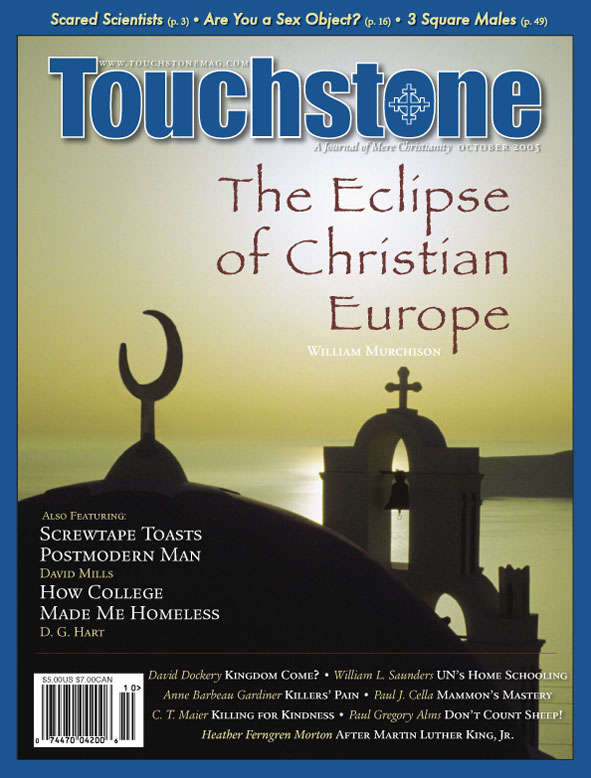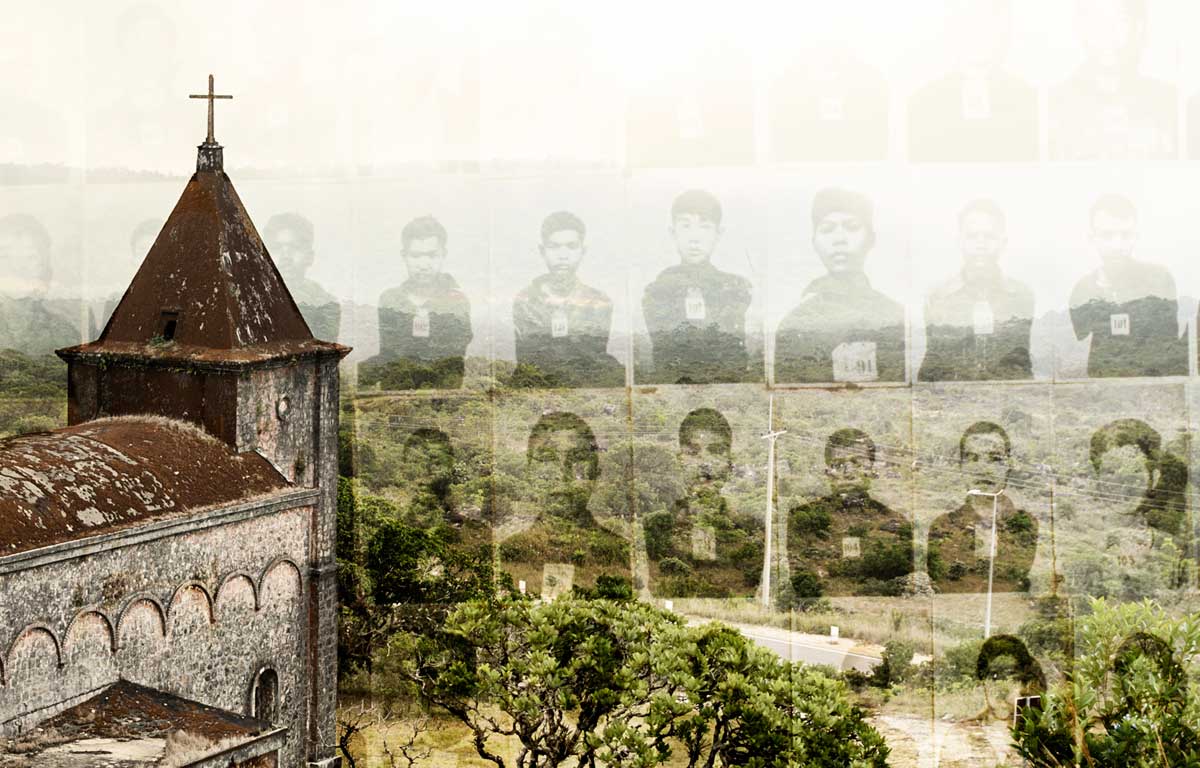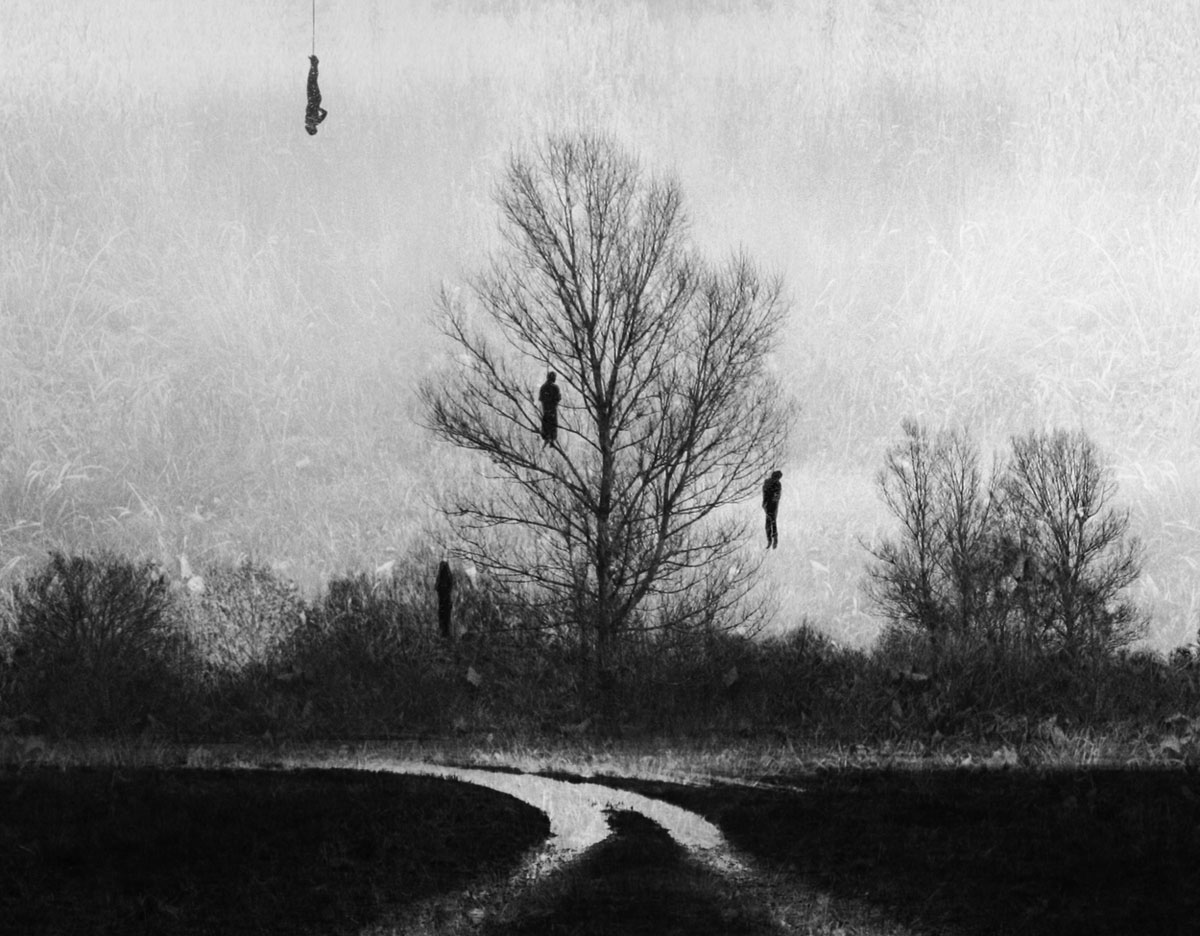Feature
Education & Alienation
What John Henry Newman Could Learn from Wendell Berry
What fellowship hath Jerusalem with Athens? When Tertullian asked that question in the late second century, the prospects for reconciling Western Christianity with Greek learning did not look particularly promising. But today this query sounds as strange as he thought the academy was to the church, for Jerusalem and Athens—the study of subjects like Christian theology and the classics, not to mention languages and literature, history, and philosophy—have become so marginal to the enterprise of advanced learning that their students huddle together as much as possible for support, encouragement, and a sense of importance.
But the fellowship between Jerusalem and Athens, and Berlin, London, Rome, and Philadelphia for that matter, is not simply the result of the rivalry between the humanities and the social and natural sciences. It is the result also of the frankly utilitarian and vocational turn taken by most colleges and universities, a turn to “practicality” that has relegated the liberal arts to a course of study without obvious career potential.
What may be overlooked in the welcome reconciliation of church and academy is the emergence of a conception of liberal education that is identified with the West but is fundamentally at odds with the very civilization its advocates have hoped to defend and preserve. The West, after all, is an abstraction if it is so geographically elastic as to embrace a civilization so broad as to include North America and the Middle East. Yet in efforts to defend the value of a liberal education, the idea of the West that stands behind such arguments too often results in a conception of the humanities that is inhuman, because it is severed from the places and peoples that embody Western civilization.
Rival Notions
Contemporary proponents of liberal education are seldom aware that the current plight of American higher education is in fact the product of liberal education itself. Here it is important to recognize that two rival notions of liberal education, both of which have deep roots in the history of the West, are also responsible for competing understandings of a good education. (I am indebted for the following to Bruce Kimball’s particularly valuable Orators and Philosophers.)
The older of the two was the liberal arts ideal, developed by the ancient Greek and Roman humanists, whose purpose was the training of virtuous citizens with the rhetorical skills necessary for participation in the city. Initially, the curriculum consisted of the trivium, namely, grammar, rhetoric, and logic. In late antiquity came the addition of the quadrivium, the scientific arts of arithmetic, music, geometry, and astronomy.
The aim of this notion was to acquaint students with the great minds of the past and to pass on a tradition of wisdom and learning. This tradition survives in those Great Books programs that persist at places like St. John’s College and that are increasingly being adopted by Roman Catholic institutions.
The second notion saw the inherited tradition of the trivium and quadrivium as only a means to the end of philosophical and theological wisdom. With the structural possibilities this idea opened up, such as professional faculties of law, medicine, and theology, and graduate studies that led to the Ph.D. (a doctorate of philosophy), its lasting legacy is its emphasis on intellectual creativity and original thinking.
It fueled the educational models of Bacon, Descartes, and Locke, which stressed new knowledge over received or old learning. It culminated in the pursuit of graduate study and academic specialization that now dominate research universities and even liberal arts colleges.
Two distinct conceptions of liberty inform these notions. The older model stressed a received tradition and regarded education as only appropriate for free men (men who were not dependent on manual labor) who had the leisure for study and the responsibility to exercise their freedom for the good of the city. The newer version stressed originality of thought and regarded education as a form of liberation that would free persons from the narrowness and constraints of human limitations. In its Enlightenment iteration, it signified liberation from family, land, and creed.
D. G. Hart works for the Intercollegiate Studies Institute (www.isi.org) and is an elder in the Orthodox Presbyterian Church. He is the author of A Studen't Guide to Religious Studies (ISI Books) and John Williamson Nevin: High Church Calvinist (P&R Books).
subscription options
Order
Print/Online Subscription

Get six issues (one year) of Touchstone PLUS full online access including pdf downloads for only $39.95. That's only $3.34 per month!
Order
Online Only
Subscription

Get a one-year full-access subscription to the Touchstone online archives for only $19.95. That's only $1.66 per month!
bulk subscriptions
Order Touchstone subscriptions in bulk and save $10 per sub! Each subscription includes 6 issues of Touchstone plus full online access to touchstonemag.com—including archives, videos, and pdf downloads of recent issues for only $29.95 each! Great for churches or study groups.
Transactions will be processed on a secure server.
more from the online archives
calling all readers
Please Donate
"There are magazines worth reading but few worth saving . . . Touchstone is just such a magazine."
—Alice von Hildebrand
"Here we do not concede one square millimeter of territory to falsehood, folly, contemporary sentimentality, or fashion. We speak the truth, and let God be our judge. . . . Touchstone is the one committedly Christian conservative journal."
—Anthony Esolen, Touchstone senior editor










